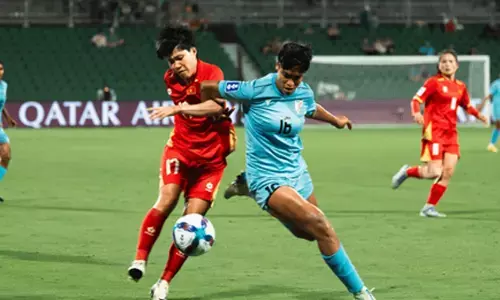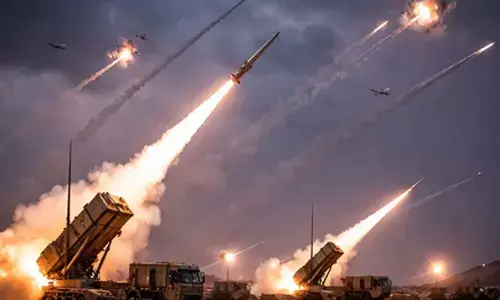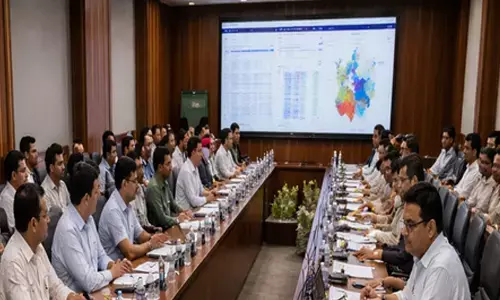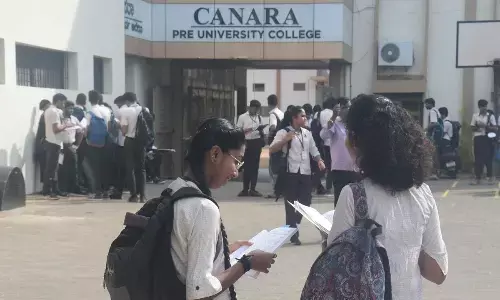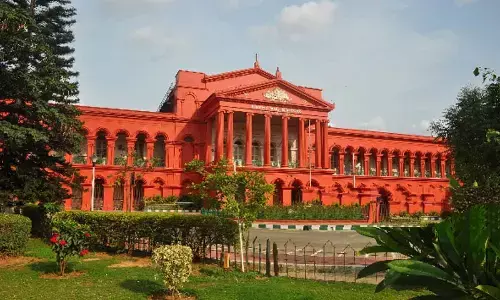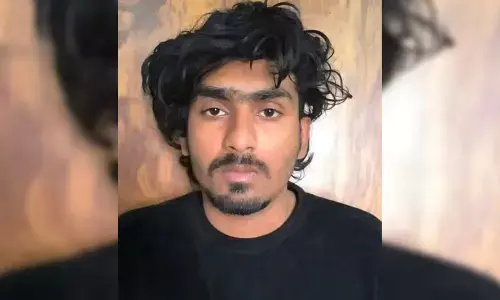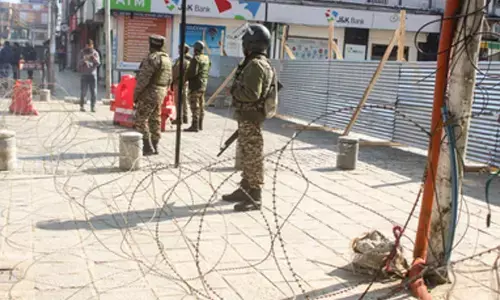It's 7 Vs 1 on Syria at G8 summit

- G8 meet in Northern Ireland on June 17-18
- Syria, EU-US free trade major talking points
- Russia opposes arming Syrian rebels
- EU, US want to end Assad regime
Russia President asked on Sunday if the West really wanted to support rebels "who not only kill their enemies but open up their bodies and eat their internal organs in front of the public and the cameras"
 Lough Erne (Agencies): UK Prime Minister David Cameron said on Sunday he hoped the G8 nations would focus on "common ground" on the issue of bringing peace to Syria. But Russia, Syria's key ally, opposes US plans to arm the rebels - something leader Vladimir Putin made clear after talks with Cameron on Sunday. Other nations joining the UK, US and Russia for the 39th Summit of the Group of Eight (G8) in Lough Erne, County Fermanagh, are Canada,France, Germany, Italy and Japan.
Lough Erne (Agencies): UK Prime Minister David Cameron said on Sunday he hoped the G8 nations would focus on "common ground" on the issue of bringing peace to Syria. But Russia, Syria's key ally, opposes US plans to arm the rebels - something leader Vladimir Putin made clear after talks with Cameron on Sunday. Other nations joining the UK, US and Russia for the 39th Summit of the Group of Eight (G8) in Lough Erne, County Fermanagh, are Canada,France, Germany, Italy and Japan.
Amid rising tensions over Syria, Putin will meet US President Barack Obama in Northern Ireland on Monday for what could be prickly talks, as both leaders now offer military support to opposing sides in the war. In London, Putin insisted that Moscow had abided by international law when supplying weapons to Assad's regime and demanded that Western countries contemplating arming rebels do the same. "We are not breaching any rules and norms and we call on all our partners to act in the same fashion," Putin said.
The Russian leader referred to a video released last month purportedly showing a rebel Syrian fighter eating the heart of a dead soldier. He asked if the West really wanted to support rebels "who not only kill their enemies but open up their bodies and eat their internal organs in front of the public and the cameras".
But Cameron said: "What I take from our conversation today is that we can overcome these differences if we recognise that we share some fundamental aims: to end the conflict, to stop Syria breaking apart, to let the Syrian people decide who governs them and to take the fight to the extremists and defeat them." Obama will emphasise to Putin that Washington wants to keep alive a mooted Geneva peace summit co-organised with Moscow, which appears to be slipping down the list of priorities.
The two-day summit is also expected to focus on global economic issues. Cameron, the host, hopes to oversee the launch of talks for an EU-USfree trade deal and achieve progress on tax transparency. Taking place on 17 and 18 June 2013, the agenda of the G8 summit lists items such as advancing trade, ensuring tax compliance and promoting greater transparency � in other words the "three Ts" � of which the New Alliance for Food Security and Nutrition in Africa is part.
The summit, as expected, has drawn much attention from anti-capitalist activists and various other organisations worldwide who want their concerns heard. London has been the scene of a series of demonstrations to mark the G8, with campaigners using the opportunity to highlight issues like Britain's close links with the arms industry and big businesses.
The mood is lighter this year than previous anti-G8 demonstrations but the message is clear � in an age of austerity and economic crisis, the world's economic leaders should shoulder some of the blame. For some protestors, it was time for the banking sector to come under the spotlight, for others it was to draw attention to hunger in Africa.
'UK snooped on G20 leaders' London (PTI): Britain spied on foreign politicians and officials participating in two G20 meetings here in 2009 by using "ground-breaking" intelligence capabilities to get an edge during the high-stakes financial talks, a media report said on Monday. During G20 meetings in April and September 2009 the Government Communications Headquarters (GCHQ), the British the intelligence service, used what one document calls "ground-breaking intelligence capabilities" to intercept the communications of visiting delegations.
Some delegates were tricked into using Internet cafes which had been set up by British intelligence agencies to read their email traffic. The paper said that GCHQ penetrated the security on delegates' mobile phones to monitor their email messages and phone calls at the time of the meetings.
The documents say that the then Turkish finance minister, Mehmet Simsek, and possibly 15 other members of his party were targeted. The US's National Security Agency also attempted to eavesdrop on the Russian leaderDmitry Medvedev as his phone calls passed through satellite links to Moscow, according to the documents.


